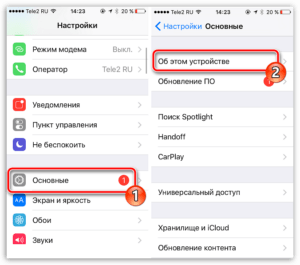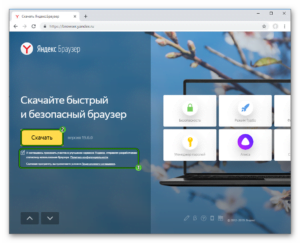- Improving Internet Speed: Best Practices
- Internet Safety: How to Protect Your Privacy
- Making the most of your browser: tips and tricks
- Internet for children: safety and control
- How to Improve Your Online Experience with Browser Extensions
- Search Engine Tips: How to Find Exactly What You Need
- How to Avoid Ads on the Internet: The Best Ad Blockers
- How to Increase Security Online: Using a VPN and Antivirus Software
- How to Manage Your Passwords: The Best Password Managers
- How to Speed Up Web Pages: Optimizing Images and CSS Code
- How to Manage Your Bookmarks: Best Practices
Improving Internet Speed: Best Practices
To keep the Internet running quickly and smoothly, there are several best practices you can implement. Here are some of them:
1. Upgrade your hardware. If your router or computer is outdated, your Internet speed will be slow. Try updating your hardware and see if the speed improves.
2. Clear your cache. Cache is temporary files that are stored on your computer when you browse the web. They can take up a lot of space and slow down your internet. Clear your cache to improve speed.
3. Check for viruses. Viruses can slow down the Internet. Make sure your computer is secure and free of viruses.
4. Change your DNS server. DNS servers are responsible for resolving domain names into IP addresses. If your DNS server is slow, it can slow down the Internet. Try changing your DNS server to a faster one.
5. Disable image loading. Images can take up a lot of space and slow down the Internet. If you want to quickly browse the web, then disable loading images.
These practices will help improve Internet speed and make it better for all users.
Internet Safety: How to Protect Your Privacy
The Internet is a huge and useful resource that can help us in many areas of life. However, like any other area, the Internet has its own risks and threats. One of the main risks is leakage of personal information.
To protect your privacy online, you need to follow a few simple rules. First, you should use strong passwords and not use the same password on different sites. Secondly, you need to be careful when transmitting personal information over the Internet, especially on unfamiliar sites. Third, you should use antivirus software and avoid opening suspicious emails or attachments.
You can also use special programs and browser extensions to help protect your privacy online. For example, ad blockers, which will help you avoid intrusive advertising and protect you from potentially dangerous advertising materials.
It is also important to remember that information you post on social media or other online services may become available to the general public. So before you post something, you need to think about who might be interested in it and how it might affect your privacy.
Following these simple rules will help protect your online privacy and make your online experience safer and more comfortable.
Making the most of your browser: tips and tricks
In today's world, where the Internet is an integral part of life, it is important to make the most of your browser's capabilities. This will help make work and entertainment on the Internet more convenient and efficient. Here are some tips and tricks to help make the internet better for all users.
1. Use bookmarks. This will help you save interesting pages and quickly return to them in the future.
2. Use browser extensions. They allow you to expand the functionality of the browser and make it more convenient.
3. Set up an ad blocker. This will reduce page loading time and make browsing more enjoyable.
4. Use the autocomplete feature. It allows you to quickly fill out forms and logins on websites.
5. Use the incognito mode feature. It will help maintain the confidentiality of your online activities.
6. Update your browser. This will help improve its performance and virus protection.
7. Use the "Return Closed Tab" feature. This will help bring back a closed tab if it was closed by mistake.
8. Use the "Save Page As" function. It allows you to save the necessary information on your computer and view it without access to the Internet.
9. Use the Favorites feature. It allows you to quickly return to the desired page from your favorites list.
10. Adjust the screen brightness. This will help reduce eye fatigue when viewing information on the Internet for a long time.
By following these tips, you can get the most out of your browser and make the Internet a better experience for everyone.
Internet for children: safety and control
Children today actively use the Internet as a source of information, communication and entertainment. However, along with this, there is a risk of ending up on unwanted sites, receiving malicious content, or colliding with strangers.
To protect children on the Internet, you need to use special programs and settings. Parents can set parental controls on devices to limit access to certain sites and apps, as well as set limits on internet usage time.
In addition, it is necessary to teach children the basics of Internet safety, explain how to prevent the disclosure of personal information and how to deal with strangers online.
It is important to understand that the Internet is an open space, and children can encounter unwanted situations even when using secure devices and programs. Therefore, it is necessary to constantly monitor children’s activity on the Internet and talk to them about what they can do online and what they cannot do.
Be careful and take care of the safety of your children on the Internet!
How to Improve Your Online Experience with Browser Extensions
The Internet is an incredible resource that provides access to a wealth of information, entertainment, and opportunities. However, to get the most out of your online experience, you need to use a variety of tools to help improve your online experience.
One such tool is browser extensions. These small programs add extra functionality to the browser and allow the user to manage their online experience.
So what extensions can help you improve your online experience? Here are a few of them:
1. AdBlock Plus - helps block annoying and intrusive banner ads and pop-ups.
2. LastPass - Helps you save and manage passwords for all your online accounts, eliminating the need to remember or write them down.
3. Grammarly – helps you check grammar and spelling in your text, making your content more professional and readable.
4. Pocket – allows you to save articles and videos to view later when you have free time.
5. Ghostery – Helps protect your privacy by blocking trackers and scripts that may collect your personal information.
These are just a few examples of extensions that can help you improve your online experience. Feel free to explore them more and you are sure to find the ones that are right for you.
Search Engine Tips: How to Find Exactly What You Need
Searching the internet is easy, but finding exactly what you need can be a real challenge. Here are some tips to help you search more effectively:
1. Use keywords - enter words into the search bar that most accurately describe what you are looking for.
2. Use quotation marks - If you need to find an exact phrase, put it in quotation marks. For example, 'how to make pizza'.
3. Use a minus sign - if you are searching for something, make sure the search engine will not include certain words. For example, 'pizza recipes -tomato sauce'.
4. Use the site: - If you want to find information on a specific site, enter your keywords followed by site: and the site address. For example, 'pizza recipes site:cookpad.com'.
5. Use advanced search – Most search engines have an advanced search that allows you to refine your search by adding additional parameters such as date, file type, etc.
With these simple tips, you can find exactly what you need, saving time and increasing the efficiency of your online search.
How to Avoid Ads on the Internet: The Best Ad Blockers
Online advertising is becoming increasingly aggressive, which can be annoying for many users. However, there is a solution - using ad blockers.
In this article, we'll look at the best ad blockers that will help you avoid annoying banner ads, pop-ups, and other forms of advertising.
1. AdBlock Plus is one of the most popular ad blockers that allows you to block ads on most websites.
2. uBlock Origin is another popular blocker that is small in size and does not slow down your browser.
3. AdGuard is a blocker that, in addition to advertising, also blocks other unwanted elements, such as pop-ups and trackers.
4. Ghostery is a blocker that allows you to block not only ads, but also trackers and scripts that can collect your personal information.
5. Privacy Badger is a blocker developed by the Electronic Frontier Foundation that automatically blocks unwanted elements on websites.
Choose the ad blocker that suits you and enjoy a clean and fast Internet without annoying ads.
How to Increase Security Online: Using a VPN and Antivirus Software
In the modern world, the Internet has become an integral part of our lives. We use it for communication, work, entertainment and much more. However, as the popularity of the Internet grows, so does the number of threats associated with its use. That's why it's so important to keep yourself safe online.
The two main ways that will help you improve your online security are by using a VPN and antivirus software. A VPN is a virtual private network that secures your internet connection and hides your IP address. Antivirus software, in turn, protects your computer from viruses, trojans, spyware, and other threats.
Using a VPN and antivirus software can help you maintain your privacy, protect your data and personal information, and avoid online scams. So if you want to make the Internet a better place for you and all users, use these tools to improve your online safety.
How to Manage Your Passwords: The Best Password Managers
One of the main concerns of any Internet user is security. Complex and unique passwords for each account are an essential part of protecting your data. However, remembering all these passwords can be very difficult. In this case, password managers can become your best friend.
Password managers are special programs that store all your passwords securely and automatically fill them in when you log into a website. Some of the best password managers include LastPass, 1Password, and Dashlane. They have the ability to generate complex passwords and also offer two-factor authentication for added security.
It's important to remember that using a password manager can never guarantee complete online security. You should always be careful when using public Wi-Fi networks and not trust unverified sites. However, password managers can greatly simplify the process of managing your passwords and improve your online security. Video is one of the most popular content formats on the Internet. However, video quality can vary greatly depending on your video player settings. In order to improve video quality, you need to adjust the player settings.
The first step is to select the correct video resolution. If the resolution is too low, the video will appear blurry and pixelated. If the resolution is too high, the video will slow down and take longer to load. Select a resolution that matches your Internet connection speed.
The second important parameter is the video loading speed. If the video loads too slowly, it can cause the video to stutter and freeze. In order to speed up video loading, you can use special programs and browser extensions.
The third parameter is video quality. Video quality depends on many factors such as resolution, loading speed and compression. You can adjust the video quality in the video player settings, selecting the optimal quality for your Internet connection.
Correctly setting your video player settings will allow you to enjoy high-quality content on the Internet without interruptions or freezes. Don't forget that video quality depends not only on the player settings, but also on your Internet connection. Use special programs and extensions to speed up video loading and get the best quality.
How to Speed Up Web Pages: Optimizing Images and CSS Code
Optimizing the loading of web pages can significantly improve the user experience and increase user satisfaction. In this article, we'll look at two of the most common ways to optimize web page loading: optimizing images and optimizing CSS code.
Image optimization
Images can take up a large amount of data, which slows down the loading of the web page. However, there are several ways to optimize images to speed up web page loading:
1. Scaling images. Using scaled images with a smaller file size will help reduce the amount of data that needs to be loaded onto the page.
2. Image compression. There are various tools that can reduce the file size of an image without compromising its quality. For example, you can use JPEG or PNG image formats with compression settings.
3. Reduce the number of images. Sometimes you can remove a few images or replace them with lighter alternatives to reduce the amount of data loaded on the page.
CSS Code Optimization
CSS code can have a significant impact on page load time. Optimizing your CSS code will help reduce page load time and improve the user experience.
1. Reducing CSS code. Removing unused styles and merging duplicate styles can significantly reduce the size of your CSS file.
2. Using inline CSS. Inline CSS can be more efficient than external CSS because it is loaded along with the page's HTML.
3. Use compressed CSS. Compressing CSS code can reduce its size, which will reduce page load time.
In conclusion, optimizing your images and CSS code can significantly speed up the loading of web pages and improve the user experience. Sharing these techniques among web developers will help make the web a better place for all users.
How to Manage Your Bookmarks: Best Practices
Storing and managing bookmarks can be a daunting task, especially if you already have a lot of them. But there are a few best practices that can help make the process more convenient and efficient.
1. Organize your bookmarks by category. Create folders or tags to easily find the pages you need.
2. Delete irrelevant bookmarks. Periodically review your bookmarks and delete those that are no longer needed.
3. Use your browser history. If you forget to bookmark a page you need, you can always refer to your browser history.
4. Sync bookmarks between devices. If you use multiple devices, such as a computer and a smartphone, sync your bookmarks between them.
5. Use services to store bookmarks. There are services that allow you to store and manage bookmarks online, for example, Pocket or Evernote.
By following these best practices, you can manage your bookmarks more efficiently and save interesting pages for later use.
Read further:






